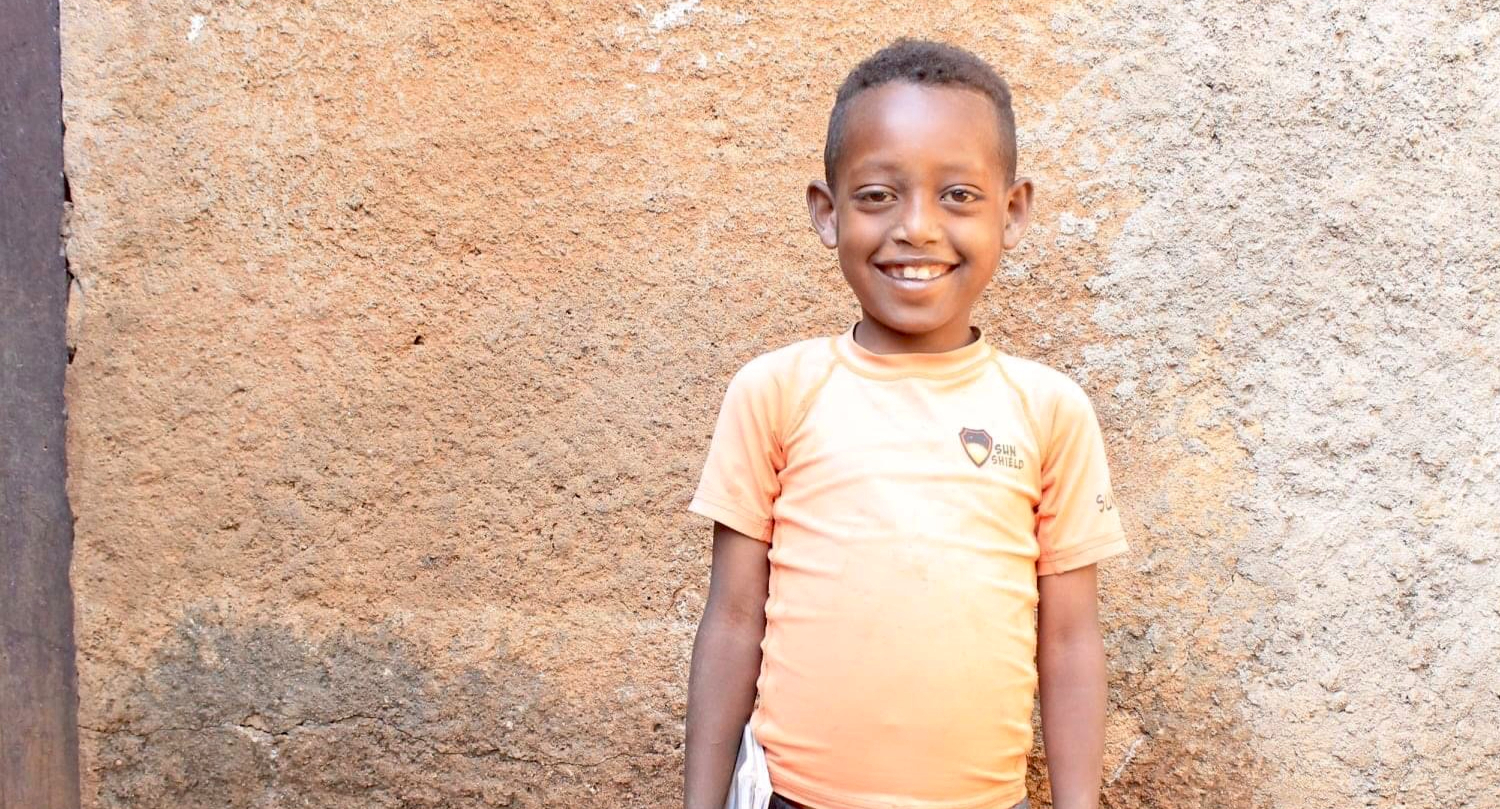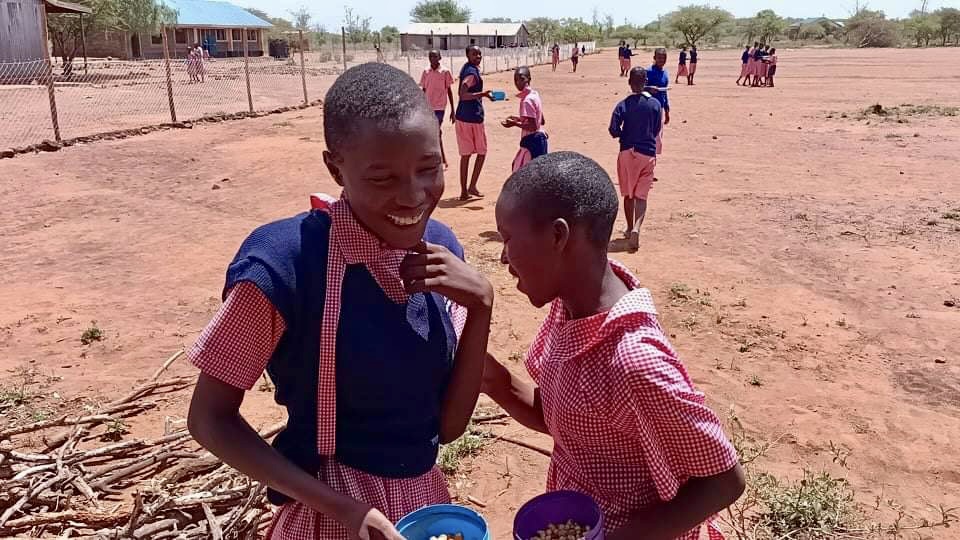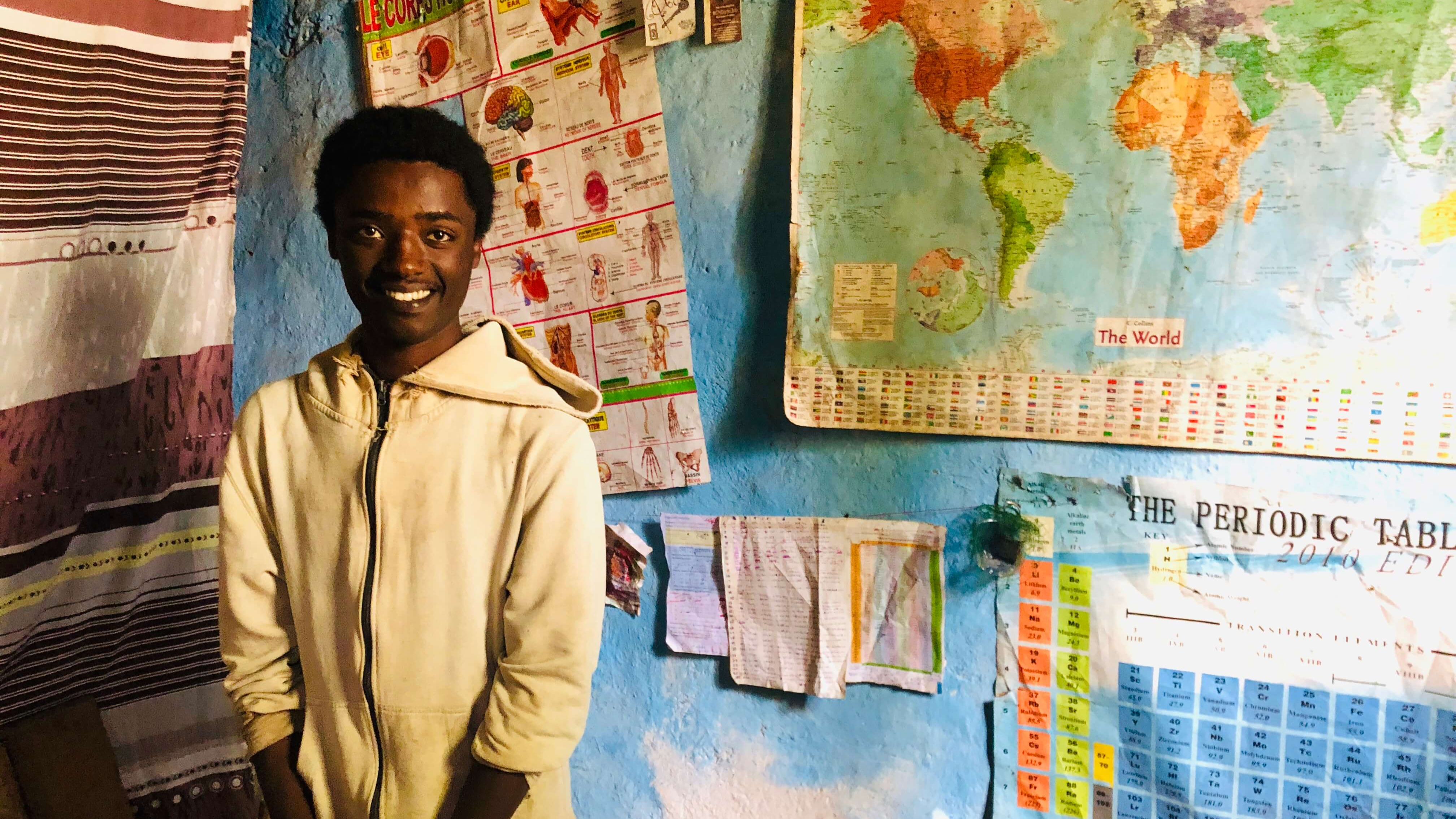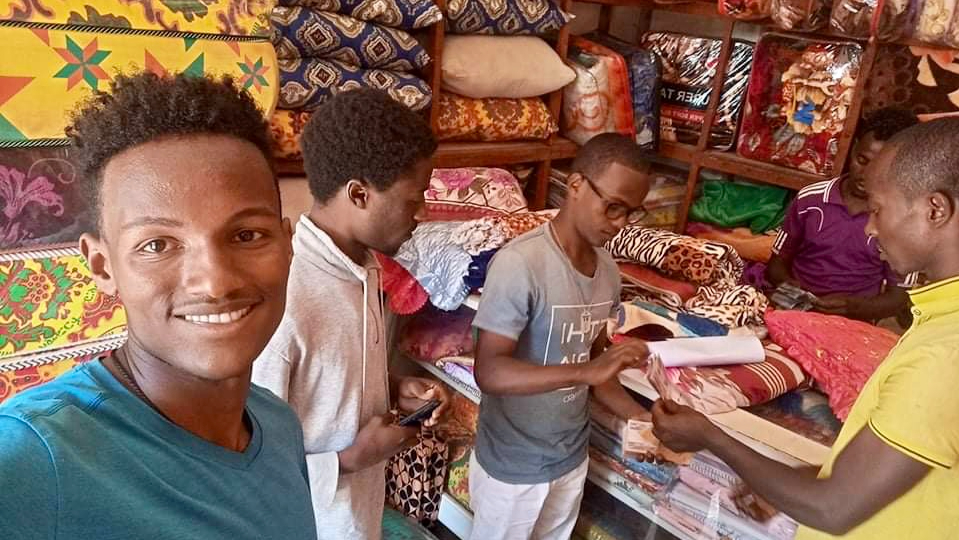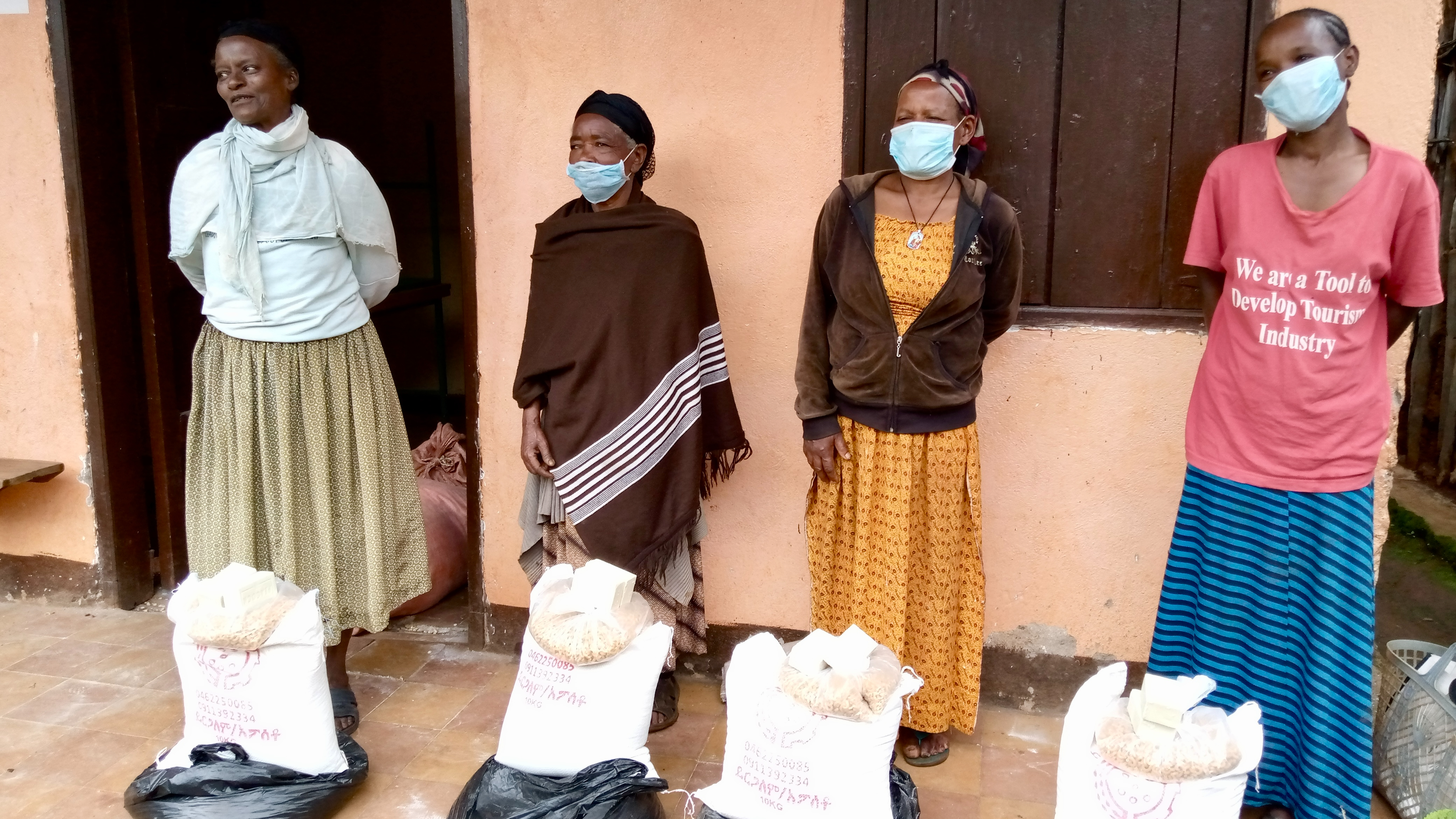
A chance to be children
In Ethiopia, millions of children live in poverty and lack basic access to one or more life necessities such as food, shelter, education, and healthcare. Many live in rural areas dependent on agriculture and are often impacted by catastrophic climate events. The region’s cycle of poverty is toughest on its youngest inhabitants–a crisis that has drawn the attention and resources of several organizations. Yet much remains to be done.
Dream Makers is one of those non-profit organizations dedicated to helping give these children and their families a better life and hope for the future. Dream Makers operates in Southern Ethiopia in a town called Yirgalem. Formed three years ago, Dream Makers is licensed by the Sidamic national and regional government and the town of Yirgalem’s Office of Women, Children, and Youth Affairs.
“The greatest tragedy in life is not death, but life without a dream.”
–Dream Makers’ slogan is drawn from the words of Dr. Myles Munroe

What we do
Poverty is widespread in this area, with much of the population living in mud houses. Large families living in cramped quarters with limited resources means many children are driven to seek survival in the streets, particularly in cases where a parent has died.
WIthout intervention, these “street children” lack basic needs such as shelter, food, and education. Despite the fact that there are more than 12 non-governmental organizations (NGO) rendering aid in Yirgalem, the dramatic increase of children living in the street, along with an increase in addicted youth, lends a sense of urgency for us all to work together to provide more programs to help this community.
Through a variety of programs, Dream Makers addresses the needs of vulnerable children in this extremely poor, rural area. The organization works to provide shelter, food, education, and hope to children and youth who are living in the streets. Dream Makers also aims to reunite children with their families and build stability in the community by improving the overall faith, health and education of the next generation.

Habitation Program – Dream Makers Habitat Center
Dream Makers’ central focus in Yirgalem is the Dream Makers Habitat Center. Through the habitation program, the organization can move children off the street and into the Center. There, the children are given a safe place to sleep, nutritious meals, mental, physical and spiritual education, and an opportunity to be children. This program has the potential to transform the lives of many children in the community by providing room, board and education to street children and educational and library access to vulnerable children in rural communities.

A Day in the Life of a Child
The Dream Makers Center not only provides shelter and meals for vulnerable children, but also offers a structured schedule of daily activities, including schoolwork, sports, music, prayer, and of course, downtime and fun!
A sample of a weekly schedule can be seen below.
Join us for a day at the Center:
Wake up everyone! Let’s get moving!
Sports (6:30 to 7:30 a.m.)
Physical exercise is one of our targeted programs for the kids in the center. Not only is it a fun way to start the day, but it provides physical fitness and instills healthy habits, teamwork and discipline in the children, many of whom express an interest in later competing in soccer or track. We also hope to expose the children to sports they might not be familiar with such as baseball or American football.

Of course, to effectively offer this program, the center needs to equip the children with sportswear, shoes, and PE equipment such as balls, bats, etc. Sponsorships help us provide this vital resource for the physical health of the children and ensures they have some fun during their busy days.
Morning Preparations (7:30 to 8:00 a.m.)

After getting their blood flowing with exercise, the children head back to their rooms to make their beds and clean up for breakfast. The children are expected to wash their faces, brush their teeth, and tidy their rooms. This program not only promotes good hygiene but teaches the children to be responsible for keeping their living areas clean.
To support this program, Dream Makers seeks donations of personal hygiene products, soaps, lotions, and other cleaning agents.
Breakfast (8:00 to 8:30 a.m.)
Having built up an appetite, the children gather around tables to eat a hearty breakfast. Eating together allows the children to talk and build friendships and is an important part of improving their communication and social skills.
In addition, mealtime is an opportunity for them to learn to properly use utensils and practice table manners while fueling their bodies for the rest of the day.
Break (8:30 to 9:00 a.m.)
After breakfast, the kids are given a 30-minute break to finish cleaning their rooms and to wash their hands after the meal.

Study (9:00 a.m. to noon)
The morning activities of exercise and breakfast are designed to prepare the children’s minds and bodies for a day of learning and enrichment. While some of the children will engage in traditional studies, those who have not yet started school will spend their study time in the Dream Maker’s library. The library provides enrichment activities and a learning environment that will prepare them for the school experience when the time comes. Those in the traditional classrooms also have the opportunity to study in the library later in the day. During study time children are exposed to grammar and writing, music and art.
Song (Noon to 1:00 p.m.)
Music and singing are the perfect outlet for children who have been quietly focused on their studies for a few hours. This part of the day has an added benefit of teaching the children songs of worship and praise drawn from inspirational stories in the Bible. Not only can they let off steam and make a joyful noise, but this practice also allows them to engage more fully during Sunday worship.
Lunch (1:00 to 2:00 p.m.)
Lunchtime is not just a time to refuel for the afternoon’s activities. The children love to visit and talk to each other about the new things they have been learning.

TV Time (2:00 to 3:30 p.m.)
Shhhh. Don’t tell the kids, but this part of the day is also educational. However, so few of them have had access to TV in our community, they love to watch the videos, movies and other instructional programs we provide.
With TV time, we are continuing to expose them to new things and teaching them about the world, while they think they are just having fun. It’s a win-win.
Games (3:30 to 5:00 p.m.)
While we endeavor to build fun into every part of the day, game time is an opportunity for the children to relax, play and bond with each other–to just be kids.
Music and singing are the perfect outlet for children who have been quietly focused on their studies for a few hours. This part of the day has an added benefit of teaching the children songs of worship and praise drawn from inspirational stories in the Bible. Not only can they let off steam and make a joyful noise, but this practice also allows them to engage more fully during Sunday worship.

Cleaning (5:30 to 6:00 p.m.)
After game time, the children take a short break to clean up before the evening’s activities.
Watching Comic Videos (6:00 to 7:30 p.m.)
This is one of our favorite parts of the day because the center is filled with laughter. The children gather to watch funny videos and laugh together. Their favorites include the comic antics of Mr. Bean and Charlie Chaplin.

Dinner (7:30 to 8:30 p.m.)
As you might imagine, all this activity has built up the children’s appetites. As they eat a nutritious meal together, the children continue to laugh as they share their favorite parts of the videos and stories from their day.
Advice & Discussion (8:30 to 9:00 p.m.)
All children have questions and need guidance and encouragement. This time before bed is an opportunity for them to discuss their goals and dreams, explore their potential and express what excites them. Members of the staff and the community also share their life experiences with the children to give them hope and expand their horizons.
It’s been a busy day full of new experiences. It’s time to rest.
How you can help
Our ability to provide and grow these programs is dependent on sponsorships and donations. We literally can’t do it without you, but every sponsorship has a tremendous impact on the lives of children. Here are a few ways you can help.
Sponsorship opportunities
Habitation Program – A 2000 birr ($50) per month sponsorship will provide one child with habitation, meals, educational access, library access, a monthly video chat with sponsor and other programs in the DM Center.
Other needs:
PE equipment
Sportswear
Shoes
Bedding
Toiletries
Cleaning supplies
Thank you

Written by: Karen Tatum
Karen Tatum is a communications strategist and self-proclaimed word nerd. Originally from Trinidad, she is passionate about her family, travel, books, American football, and of course, worthy causes.
- Tags:
- Child Support
- Education
- Ethiopia
Category

